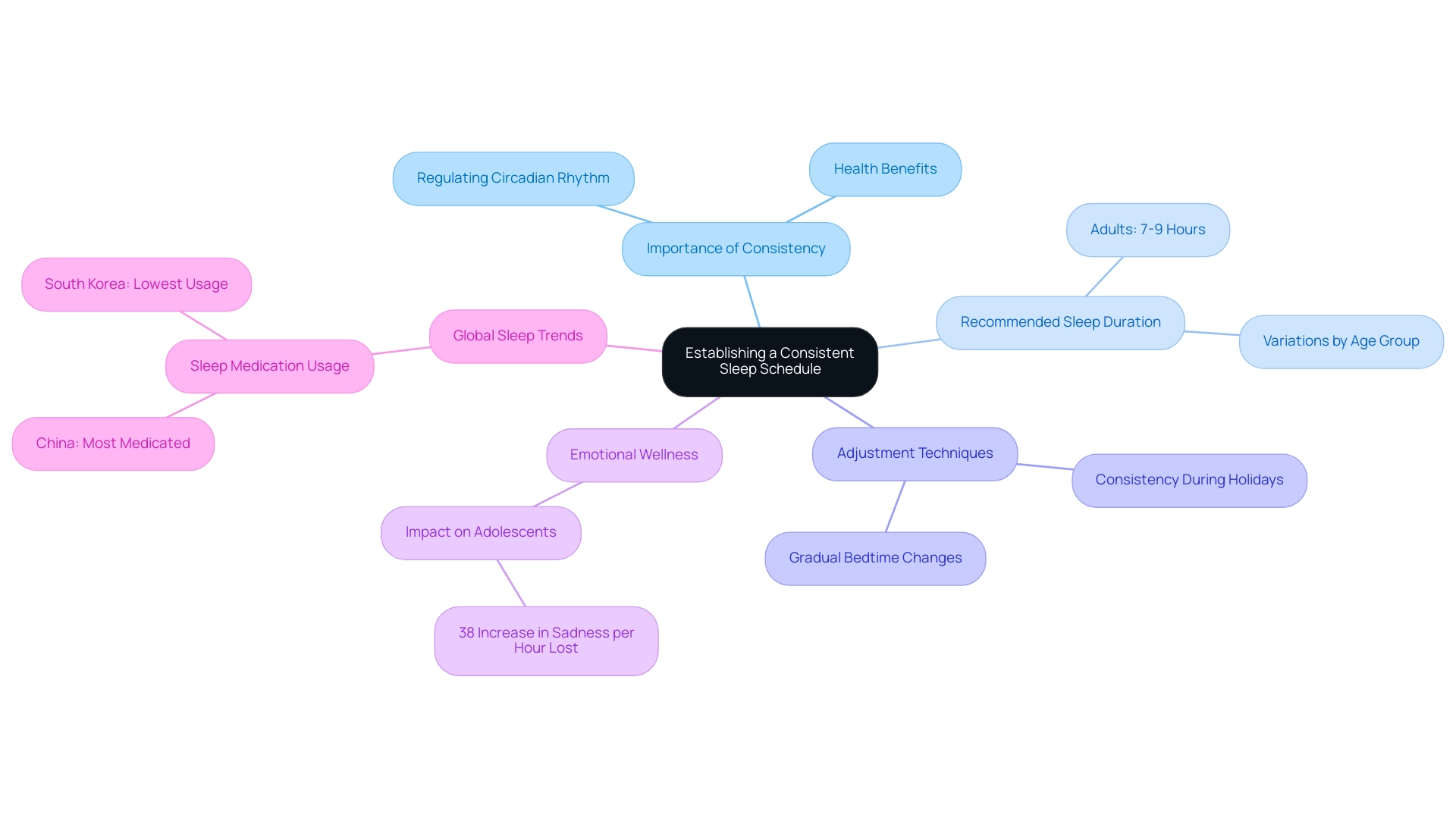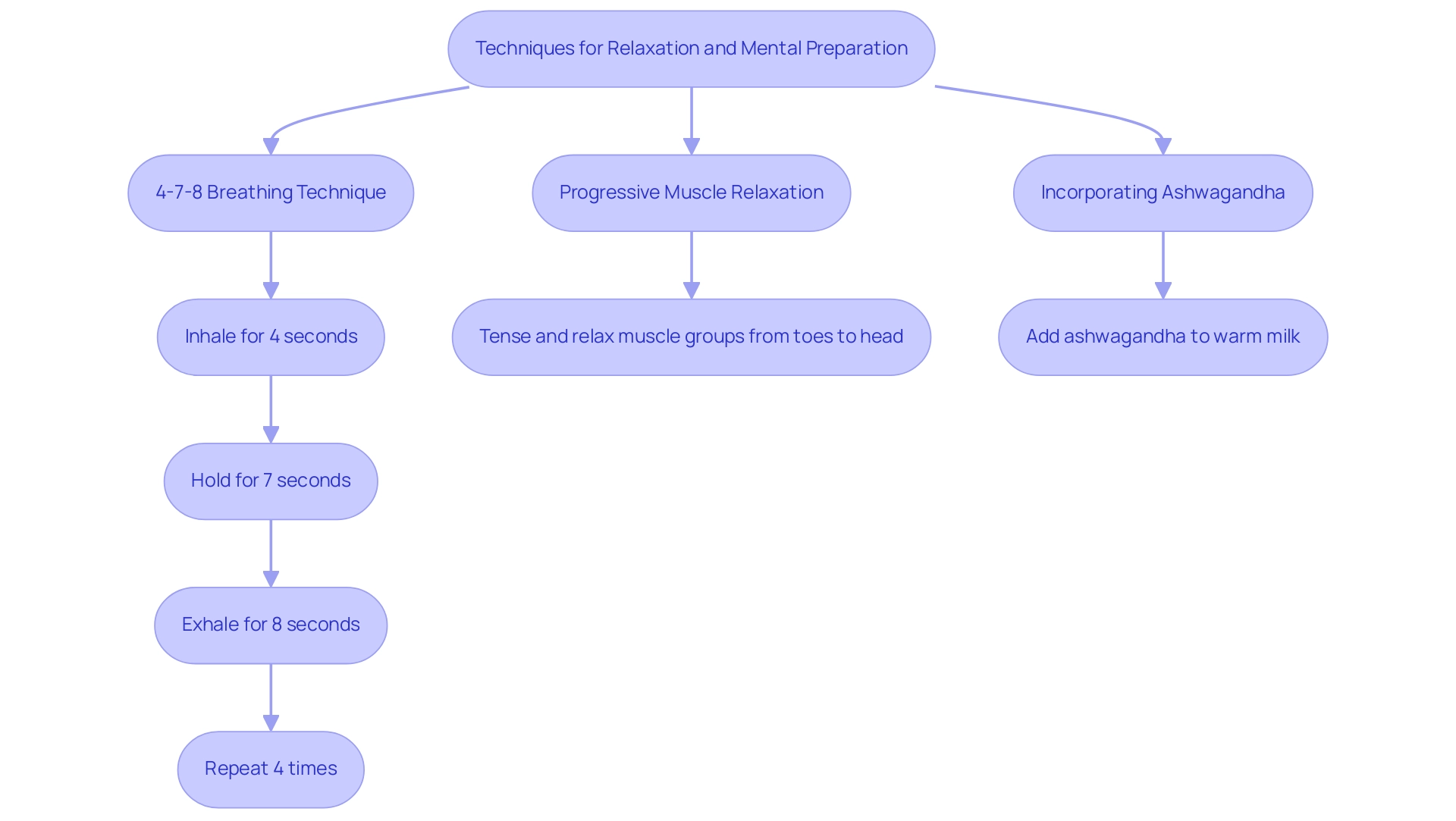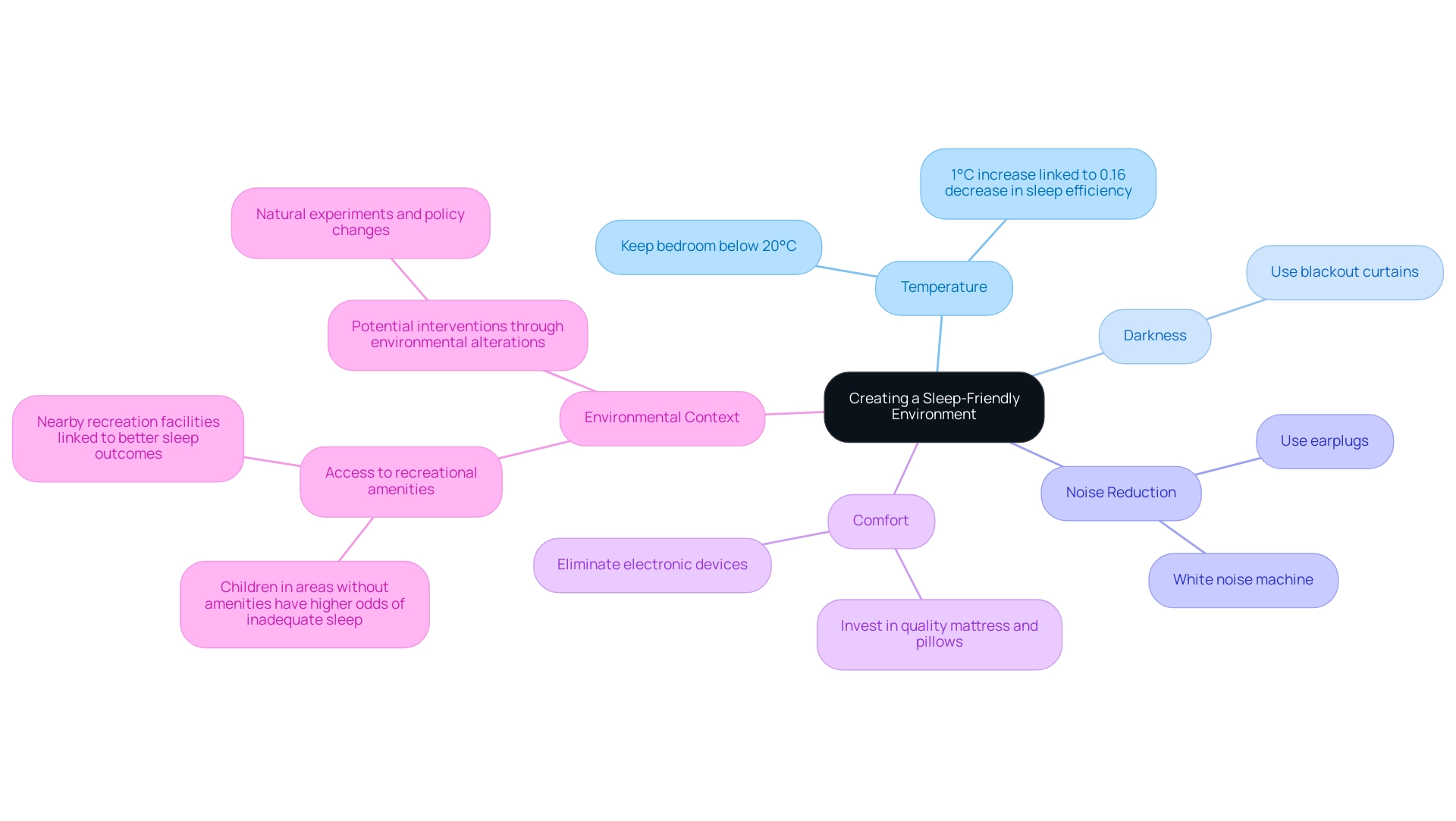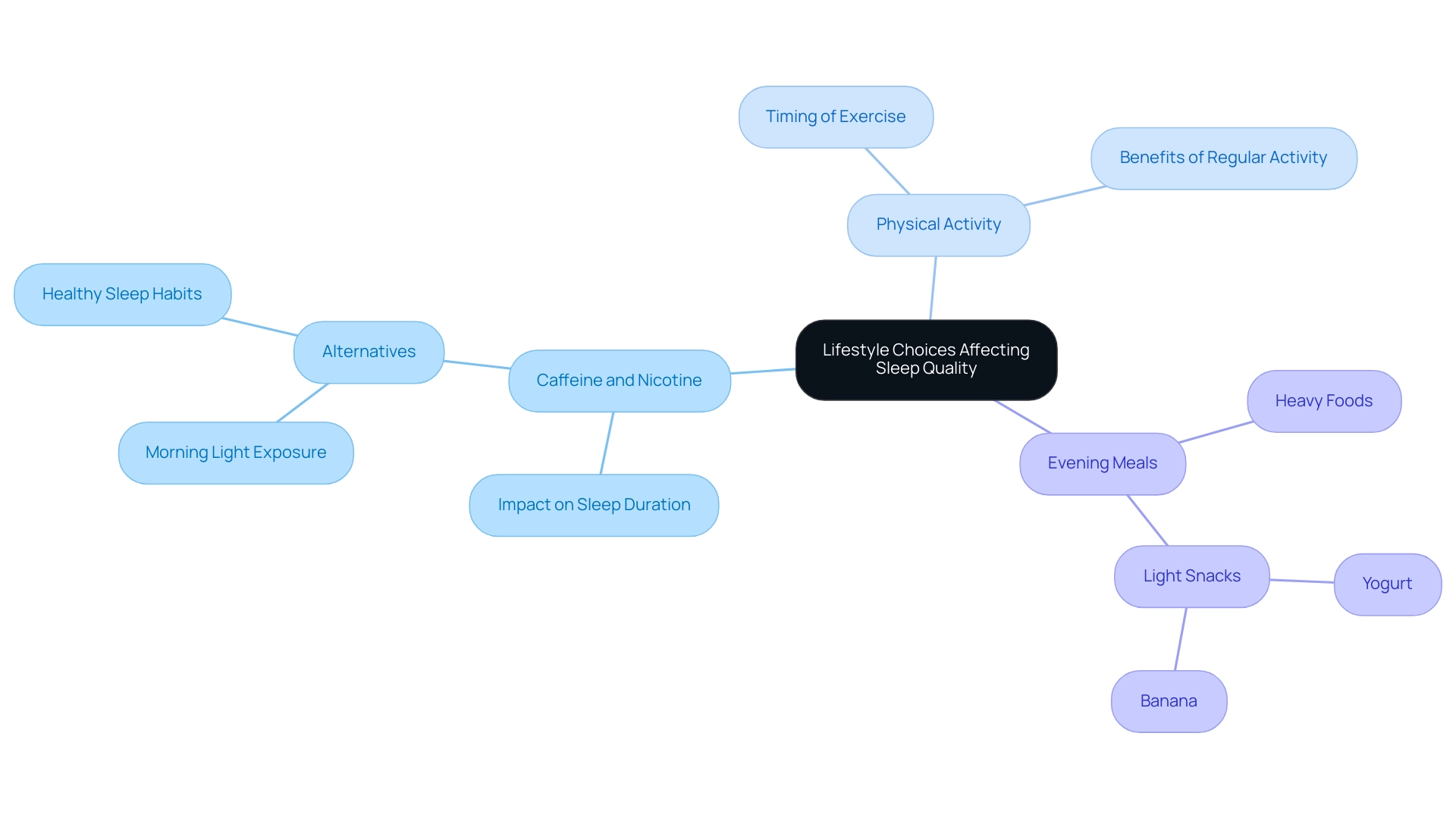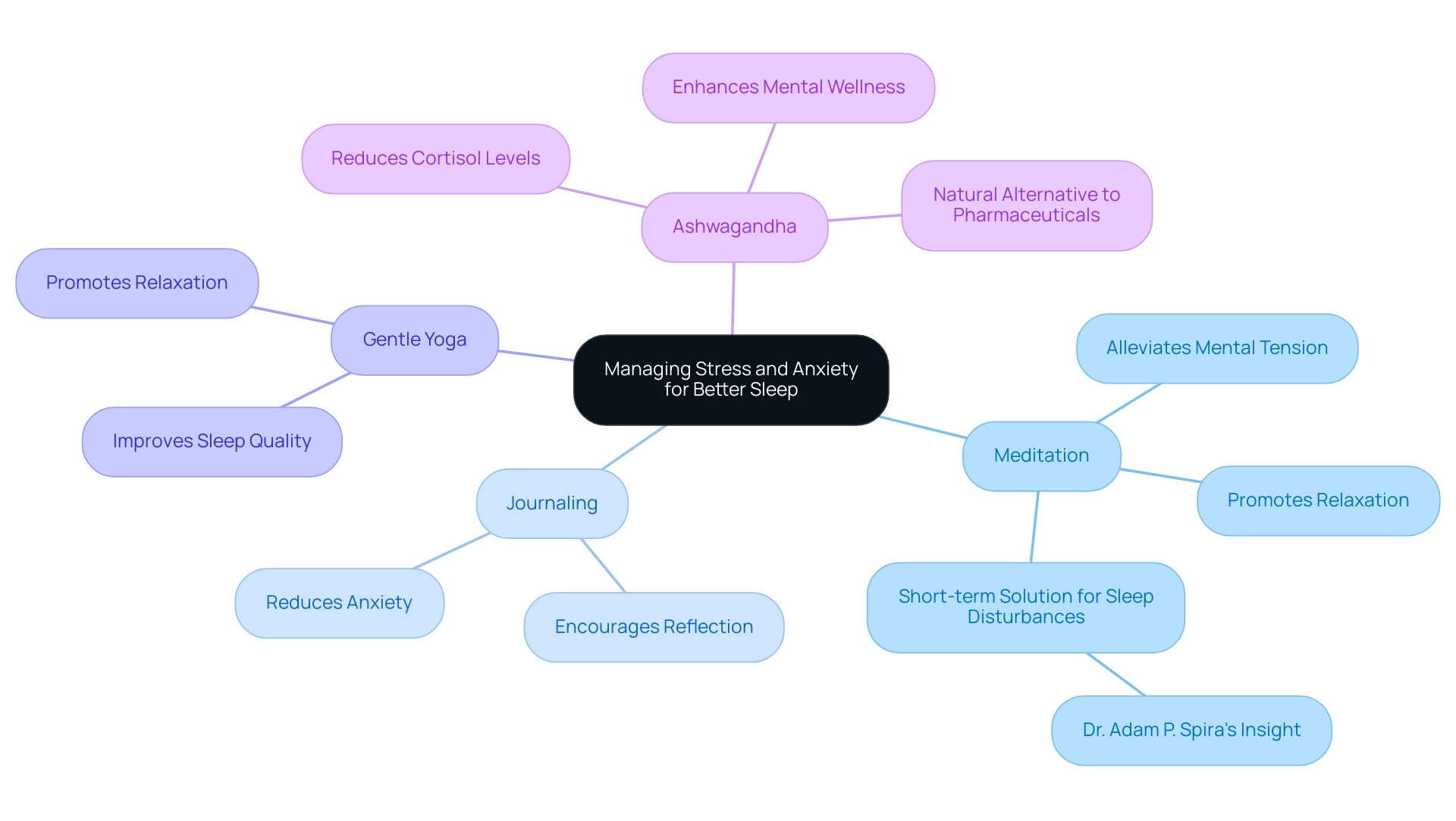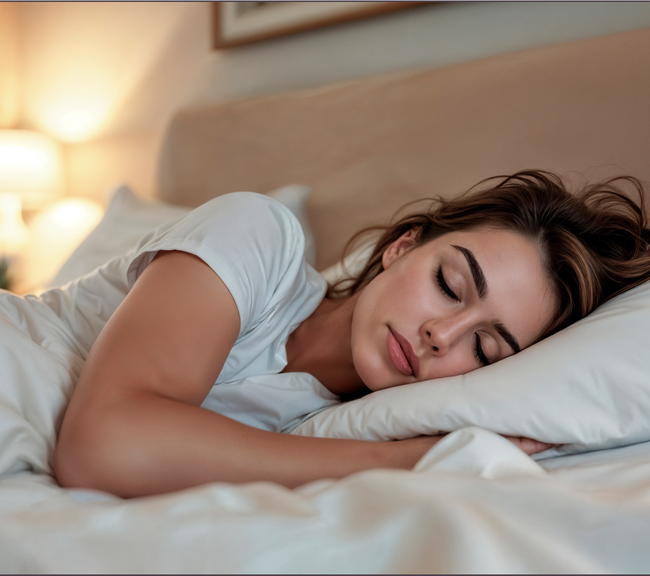Introduction
In today's fast-paced world, achieving restful sleep can often feel like an elusive goal. With the increasing demands of daily life, many individuals struggle to maintain a healthy sleep routine, leading to a cascade of negative effects on physical and mental well-being.
This article delves into practical strategies for enhancing sleep quality, including:
- Establishing a consistent sleep schedule
- Creating a sleep-friendly environment
- Exploring the impact of lifestyle choices
- Implementing relaxation techniques
- Practicing stress management
By providing evidence-based insights and actionable tips, readers can understand the various factors that influence sleep. This knowledge empowers them to take informed steps towards improving their nightly rest and overall health.
1. Establishing a Consistent Sleep Schedule
To establish a consistent rest schedule and understand how to fall asleep fast, prioritize going to bed and waking up at the same times daily, including weekends. This practice is essential in regulating your body's
circadian rhythm, which teaches you how to fall asleep fast and facilitates a more natural awakening process. Research indicates that adults typically require between 7 to 9 hours of rest for optimal health, while the recommended duration of rest may vary across different age groups.
Begin by identifying your ideal rest duration and, if necessary, make gradual adjustments to your bedtime and wake time in 15-minute increments. This approach allows for a smoother transition to a sustainable routine. Consistency remains essential; strive to follow this schedule even during holidays or vacations to maximize the health benefits associated with a stable rest pattern.
Importantly, recent research highlights the substantial connection between rest routine consistency and emotional wellness, especially among adolescents, where each hour of missed slumber corresponds to a 38% rise in feelings of sadness and despair. Clare Anderson from the School of Psychological Sciences and Turner Institute for Brain and Mental Health states, 'No author’s commercial affiliation/s alters our adherence to PLOS ONE policies on sharing data and materials,' emphasizing the importance of research integrity in rest investigations. Additionally, the case study highlighting that China is the most medicated nation for rest, with one in five people taking prescription medication for rest, contrasts with South Korea's lower usage, illustrating the global differences in rest habits and the potential health implications of inconsistent schedules.
By establishing and maintaining a regular rest routine, you can improve your understanding of how to fall asleep fast, which enhances both your cognitive function and overall health.
2. Techniques for Relaxation and Mental Preparation
Incorporating relaxation techniques into your bedtime routine can significantly enhance how to fall asleep fast. One particularly effective method is the 4-7-8 breathing technique, which involves:
- Inhaling through your nose for 4 seconds
- Holding your breath for 7 seconds
- Exhaling through your mouth for 8 seconds
Repeating this cycle four times can help calm the nervous system and reduce anxiety levels, facilitating a smoother transition to rest.
Significantly, recent research suggests that participants using this technique report enhanced rest conditions, which is important for those wanting to know how to fall asleep fast.
Additionally, consider implementing progressive muscle relaxation. This technique involves systematically tensing and then relaxing each muscle group, starting from your toes and working your way up to your head. This method not only aids in alleviating physical tension but also encourages mental relaxation, which is essential for learning how to fall asleep fast.
Specialists highlight the significance of such methods; as one specialist remarked, "Mindfulness practices, including progressive muscle relaxation, have demonstrated considerable impacts on rest standards in clinical groups."
Moreover, recent studies emphasize how to fall asleep fast through the effectiveness of
mindfulness-based stress reduction (MBSR), as results indicate a significant reduction in daily disruptions among participants. In a comprehensive analysis, a total of 3303 records were identified, leading to 18 trials that included 1654 participants, illustrating the growing body of evidence supporting these techniques.
To enhance your relaxation efforts, consider incorporating ashwagandha into your routine. Recognized for its anxiety-reducing benefits and capacity to encourage hormonal equilibrium, ashwagandha can further enhance your rest quality. Its soothing effects can enhance your relaxation methods, making it an excellent addition to your bedtime routines.
You might even try adding a pinch of ashwagandha powder to warm milk before bed; this simple practice can help you unwind and pave the way for a more restorative rest.
3. Creating a Sleep-Friendly Environment
Establishing a favorable resting environment is crucial for understanding how to fall asleep fast and improving the overall quality of slumber. Start by making sure your bedroom stays at a cool temperature, ideally below 20°C, as studies show that a
1°C increase in air temperature is linked to a 0.16% decrease in rest efficiency. Darkness is equally vital; using blackout curtains can effectively block external light, promoting a deeper rest.
To combat noise disturbances, consider using:
- Earplugs
- A white noise machine, which can mask disruptive sounds and promote relaxation.
Furthermore, investing in a quality mattress and pillows that align with your preferred sleeping posture is vital for comfort. Eliminating electronic devices from the bedroom is also advisable, as the blue light they emit can hinder melatonin production, which is important for learning how to fall asleep fast.
Establishing a calming pre-sleep atmosphere, including dim lighting and relaxing scents like lavender, can teach you how to fall asleep fast and enhance tranquility.
In addition to these personal modifications, it's important to consider the broader environmental context. Epidemiologic data suggest strong associations between neighborhood conditions and rest outcomes, particularly for vulnerable populations who may face greater burdens of poor rest health due to their surroundings. For instance:
- Children residing in areas without recreational amenities have higher odds of insufficient rest.
- Access to nearby recreation facilities is linked to improved rest outcomes.
As Dr. Martha E. Billings emphasizes, potential interventions that may enhance health during rest can be achieved through environmental alterations. Therefore, minor adjustments in your bedroom, along with promoting improved neighborhood conditions, can greatly influence hygiene and overall well-being.
4. Lifestyle Choices That Affect Sleep Quality
To improve your rest quality, it is crucial to evaluate your lifestyle choices critically. To learn how to fall asleep fast, it is essential to avoid caffeine and nicotine in the hours leading up to bedtime, as these stimulants can significantly disrupt your ability to do so. Research indicates that
high doses of caffeine, even when consumed in the early evening, can negatively affect rest duration.
In fact, a study analyzing the caffeine content of specialty coffees reveals that even moderate amounts can linger in your system and impact your rest. Danielle, a writer with a degree in psychology from the University of British Columbia, reflects on this, stating, 'I have spent many hours staring at my ceiling trying to fall asleep, and I know firsthand how caffeine can disrupt that process.'
In line with this, experts emphasize the importance of regular physical activity in promoting better rest; however, it is advisable to complete vigorous exercise at least a few hours before bedtime to prevent any potential disruptions.
Additionally, consider the timing and content of your evening meals. Eating heavy or rich foods can result in discomfort, which can affect how to fall asleep fast. Instead, choose lighter snacks if you need to eat before bed, such as:
as these can aid in how to fall asleep fast without compromising your comfort or rest.
Furthermore, exploring alternatives to caffeine for alertness, such as morning light exposure and healthy rest habits, can also help enhance your overall rest quality.
5. Managing Stress and Anxiety for Better Sleep
To effectively manage stress and anxiety, incorporating mindfulness techniques into your daily routine can be transformative. Techniques such as:
- Meditation
- Journaling
- Gentle yoga
have been shown to significantly alleviate mental tension and promote relaxation. Additionally, incorporating ashwagandha into your routine may further support these efforts.
This herb is renowned for its natural ability to reduce anxiety and stress, balancing hormones and enhancing overall mental wellness. Research indicates that mindfulness meditation may serve as a short-term solution for older adults experiencing moderate rest disturbances, as noted by Dr. Adam P. Spira:
Mindfulness meditation may be introduced to older adults as a short-term solution to remediate their moderate rest disturbances.
In a recent study, 88% of participants (43 out of 49) completed the post intervention assessment, highlighting the effectiveness of these practices.
Furthermore, lower scores on all scales indicate improvement in the Maps group compared to the SHE group, further supporting the benefits of mindfulness. Setting aside time each evening for relaxation and contemplation of your day can help alleviate concerns that frequently disrupt rest. The calming effects of ashwagandha, which include reducing cortisol levels that cause stress and increasing serotonin levels that promote feelings of well-being, can also promote a relaxed state similar to that achieved through meditation or yoga.
With a growing prevalence of stress and anxiety-related disorders, seeking support from a mental health professional can provide additional coping strategies, particularly when anxiety becomes overwhelming. Tackling these mental obstacles is vital for improving rest standards, as both mindfulness techniques and therapeutic methods, along with the use of ashwagandha, have been linked to how to fall asleep fast and enhancements in overall health. The case study on
inflammatory signaling assessment also sheds light on this, measuring NF-κB levels to evaluate the physiological effects of the interventions, suggesting that mindfulness practices may positively influence inflammatory markers related to sleep quality.
Ashwagandha serves as a natural alternative to pharmaceuticals like Xanax, providing similar calming effects without the associated side effects.
Conclusion
Establishing a consistent sleep routine is a foundational step towards achieving better sleep quality. By prioritizing regular sleep and wake times, individuals can effectively regulate their circadian rhythms, leading to improved emotional well-being and cognitive function. The evidence underscores the importance of this practice, particularly in relation to mental health, highlighting the potential consequences of sleep deprivation.
Creating a sleep-friendly environment is equally crucial. Factors such as room temperature, light exposure, and noise levels significantly impact the ability to fall asleep and stay asleep. Implementing strategies like blackout curtains and white noise machines can foster a tranquil sleep setting, while the elimination of electronic devices can enhance melatonin production, further promoting restful slumber.
Lifestyle choices and stress management also play pivotal roles in sleep quality. Avoiding stimulants such as caffeine and nicotine, alongside engaging in regular physical activity, can create a conducive atmosphere for sleep. Mindfulness practices and relaxation techniques, including meditation and breathing exercises, are effective tools for reducing anxiety and stress, which are common barriers to restful sleep.
Ultimately, by understanding and addressing the various factors that influence sleep, individuals can take actionable steps towards improving their nightly rest. The integration of consistent schedules, a supportive environment, mindful lifestyle choices, and effective stress management techniques can collectively enhance sleep quality. Prioritizing these strategies not only promotes better sleep but also contributes to overall health and well-being.
